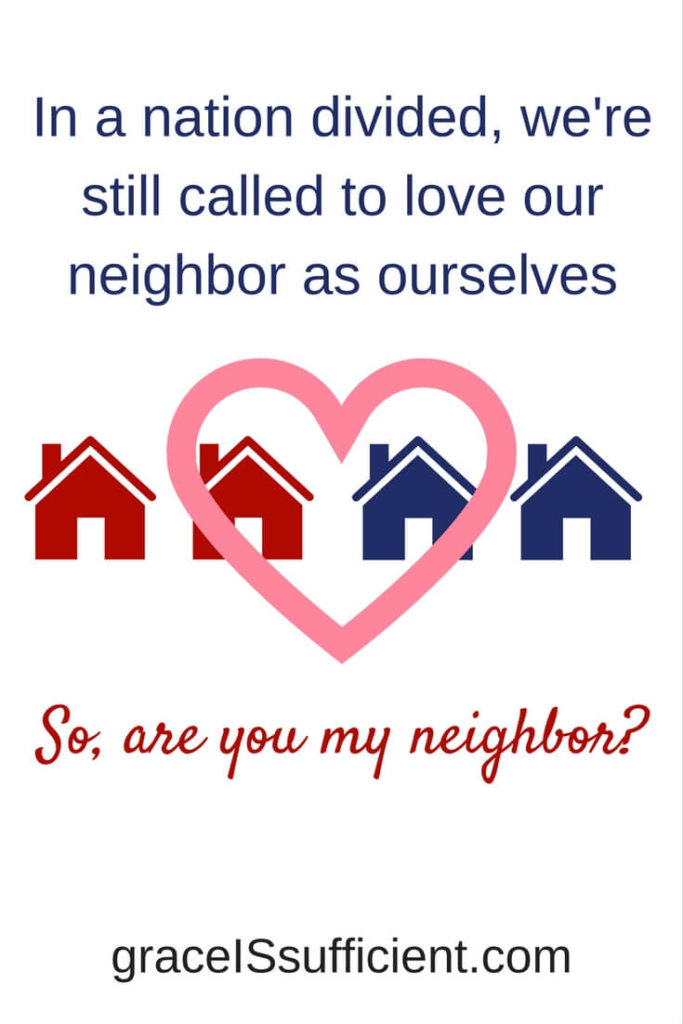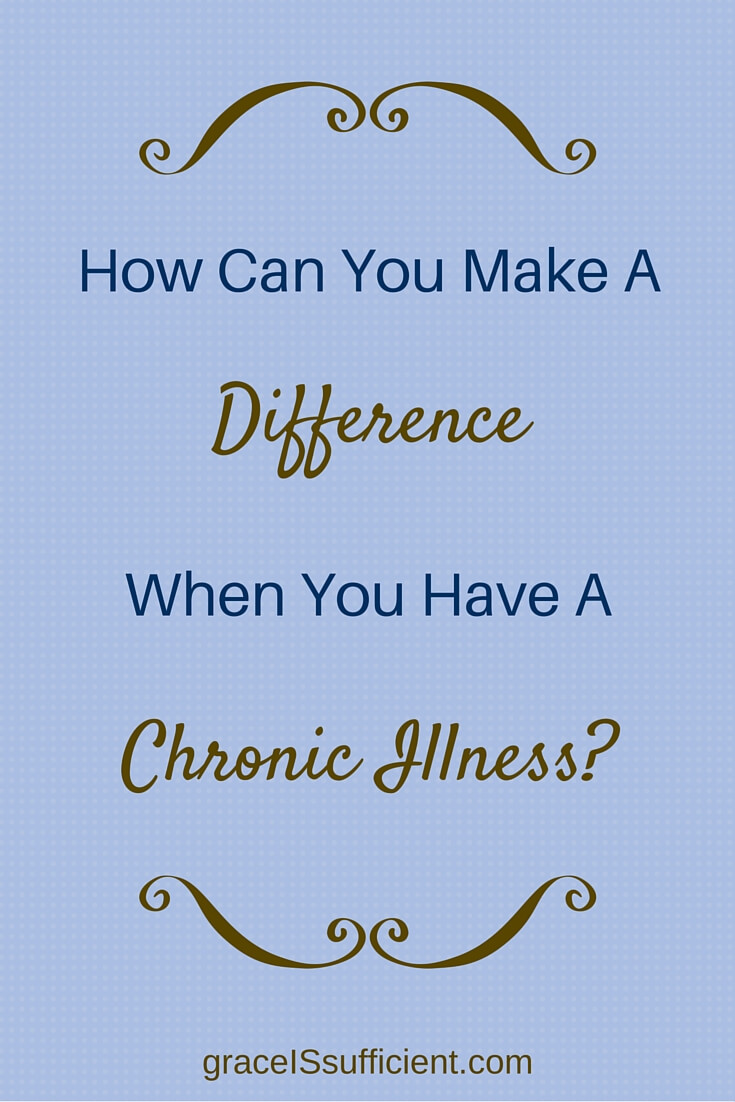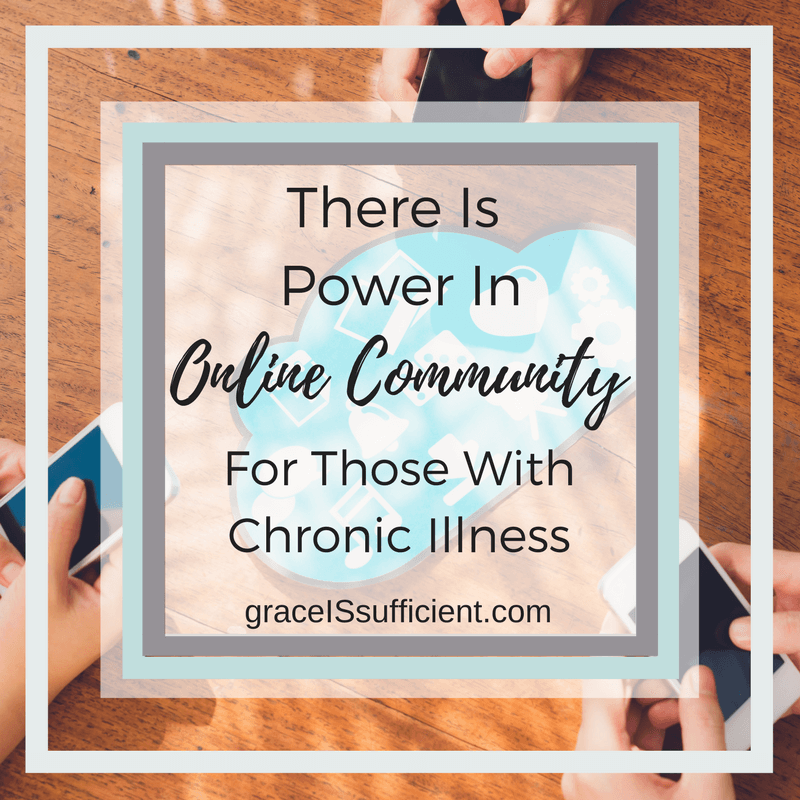Remember that old book from your childhood, “Are You My Mother?” That poor little bird was asking everyone and everything he ran into if they were his mother. As all good children’s books end (except for Bambi, which has left me scarred for life), he did finally find her.
Well, I’ve been asking a similar question for a couple of months now (not out loud, of course, I don’t want to seem like I’ve completely lost my mind).
Are you my neighbor?
The recent political race has left our nation divided. Whether your candidate won or lost – 50% of the nation is with you. With all the turmoil going on I keep going back to the verses with the Golden Rule of loving our neighbor. But who is our neighbor and to what extent do we go to show love?
Love thy neighbor……………
So I ask. Are you my neighbor?
I happen to know the names of the people that live in the first two houses to the north and south of me. They’re my neighbors, right?
Most of us are Facebook official with 682 of our closest friends. Are they our neighbors? We follow 1,244 people on Twitter; surely we would consider them our neighbors!
I often see the same homeless guy at the river by my credit union. Is he my neighbor? The man in line behind me at the grocery store – is he my neighbor?
Clearly, the person who voted for the opposing presidential candidate can’t be my neighbor. I have no obligation to be loving to someone who has opinions and world views so drastically different from mine, right? (Please read that line with all the sarcasm in place.)
I think our modern technology is great, but it sometimes gives us a false sense of knowing and loving our “neighbor”, friends, and family.
We’ll see a status and click “like” or if we’re really interested we might give a four-word comment. Of course, if it’s regarding a need or prayer request we do our spiritual duty by commenting with “praying”. Sometimes we’ll even throw in a few exclamation marks. But do we actually take the time to pray or even try to help by physically meeting their need?
Simply seeing the status highlighting the moment of their day, or updated picture of their kids and pets, makes us feel like we’ve taken part in their life that day. The real truth is that some people won’t ever write about their deepest need or spiritual hurt or heartbreak. We don’t really know them at the level required to meet their need. But we’ve spent at least 2 hours of our day in 10-minute increments with our faces glued to the computer or smartphone feeling good like we’ve truly connected with others at some level. (Pat self on back here.)
Don’t get me wrong! It’s great to be able to keep in touch in a way we never could have imagined years ago – but it’s also given us a strange sense of courage where we’re willing to write inflammatory comments and hateful slurs on a computer screen which has removed the ability to see the face of the person we’re attacking and see the hurt we’re causing in their eyes.
In Luke 10 Jesus said to “Love your neighbor as yourself.”
But a little further down in the text, when He’s telling the parable of the Good Samaritan, the individual that shows love to the man left to die in the street is clearly someone we wouldn’t normally think of as his neighbor.
A man had been beaten, stripped, robbed, abandoned, and left to die. A priest saw him, walked to the other side of the road, and passed on by. A Levite (a man from the tribe of Levi who would have typically been one to help the priests at the temple) walked on by. These two men, that would have spent the majority of their days serving God, actually cause further harm to this wounded man by their pure neglect of him. But how could they be expected to help him, after all, was he their neighbor?
He had been stripped so they couldn’t see his clothing to tell what social class he was in. What if someone came along as they were trying to help and assumed they had beaten this man? They couldn’t afford that hit to their reputation! Quite possibly he was beaten beyond recognition to where they couldn’t even tell his nationality. What if he died while they were helping him? It was a huge, time-consuming ordeal in Jewish customs to purify themselves after they had touched a deceased person. Who has time for that? Right?!
Then here comes the Samaritan. Keep in mind, in this passage in Luke, Jesus is answering questions from a Jewish lawyer. The Samaritans were not thought of too highly among the Jews. They would rather spit at each other than say hello. But Jesus chose to make the hero of the story someone that the people listening would normally have looked down upon.
The Samaritan picks up the broken man. Bandages his wounds. Takes him to a hotel. Stays and cares for him through the night. Pays the hotel manager two days’ worth of wages to cover the costs involved. Leaves him under the care of the hotel and promises to return.
What an awesome picture of what Christ has done for us!! He picks us up in our broken state. He paid for our sins on the cross. He leaves us in the care of the Holy Spirit and the comfort of His Word. He promises to return for us! It gives me chills!
So who was the actual neighbor to this wounded man? The one who showed him love and compassion.
Now back to what’s been going on in my mind these past few months…….. Are you my neighbor? Yes. Everyone you pass by or come in contact with is considered your “neighbor.”
In a nation that is so drastically divided we could use a bit more loving of our neighbors. What if, instead of blasting our emotions regarding the election on social media, we reach out to someone in need and show them love and compassion no matter what candidate sign was sitting in their front yard? True healing of this division will only come when we get off our soapboxes and put down our protest signs and reach out in love to each other.
I’m not implying that we forget our values and stop being involved in our nation’s political process – but I am saying there is a right way and a wrong way to go about it.
Maybe your asking, “How can I possibly know who I’m supposed to be loving? In this world of technology, I can be connected to thousands upon thousands of people and opportunities to help?”
I believe that’s where wisdom and the Holy Spirit come in. If you know of an opportunity to help and you have that tugging on your heart to do something then you should. But be very careful, the bible says in 1 Thessalonians 5:19 you can quench the tugging of the Holy Spirit on your heart – just like pouring water on a fire. If you don’t fuel the fire by listening and acting on His urging, eventually He’ll stop tugging until your heart is open again.
God may place us in a situation to help a needy family or support a missionary overseas or He may have us sit on the front porch with our next-door neighbor and comfort her in the loss of her mother. Opportunities to love our neighbor come in endless possible scenarios.





